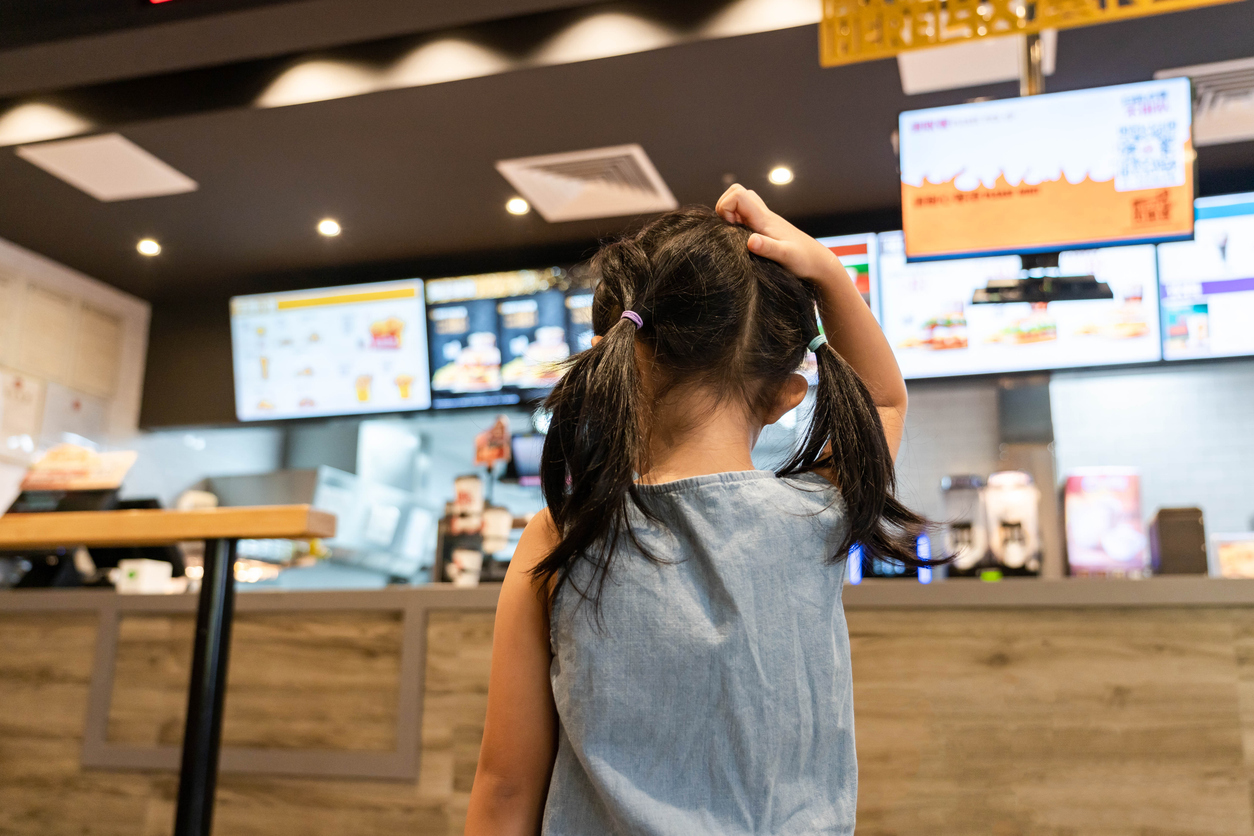Discover techniques to elevate your restaurant marketing efforts and maximize their impact with social media engagement and targeted promotions.
With the rise of social media and digital marketing, it is crucial for restaurants to have a strong online presence and utilize these platforms to engage with customers and drive sales. Get the most out of your restaurant marketing by incorporating social media and online platforms to craft compelling promotions and enhance the overall dining experience. Let’s explore some of the best ways to elevate your restaurant's visibility, customer engagement, and, ultimately, its bottom line.
What Do You Mean By Restaurant Marketing?
Restaurant marketing goes beyond promotions, involving a holistic approach to attract and retain customers. It includes building a strong brand identity, creating an inviting ambiance, and offering a unique culinary experience. This multifaceted strategy extends to traditional advertising, social media presence, excellent customer service, and community engagement. In a competitive industry, grasping these nuances is vital for standing out and building customer loyalty.
What Is A Restaurant Marketing Strategy?
A restaurant marketing strategy is a well-planned approach that extends beyond individual promotions. It involves carefully considering various elements to create a unified plan. Identifying target markets is essential for tailoring offerings and messages to specific customer segments. Choosing effective marketing channels, both online and offline, is another critical aspect. Developing a consistent brand message is vital for building recognition and trust. Crucially, a successful marketing strategy aligns with overall business goals, ensuring that each effort contributes to the restaurant's sustained success. This strategic approach prioritizes thoughtful planning for a lasting impact on the target audience.
Why Do You Need An Effective Restaurant Marketing Strategy?
A well-defined marketing strategy plays a crucial role in providing restaurants with a competitive edge and ensuring long-term success. There are several reasons you need an effective marketing strategy, including:
Gaining A Competitive Edge
An effective marketing strategy contributes significantly to establishing a distinctive competitive edge in the crowded restaurant industry. It goes beyond mere promotions, encouraging continual refinement and adaptation to stay ahead of competitors. By strategically positioning the restaurant and differentiating it from others in the industry, a competitive edge is achieved, attracting and retaining customers in this highly competitive market.
Building Customer Engagement And Loyalty
Marketing plays a crucial role in fostering meaningful customer engagement beyond one-time transactions. Loyalty programs and personalized marketing initiatives contribute to building and sustaining customer loyalty. Measuring and optimizing customer engagement metrics is vital for continuous improvement, ensuring that marketing efforts resonate with the target audience and result in long-term customer relationships.
Boosting Revenue
Effective restaurant marketing strategies directly impact revenue generation. A strategic approach to marketing is essential to maximize financial returns for the restaurant. By aligning marketing efforts with revenue goals, consistently refining strategies, and monitoring revenue, a restaurant can ensure a positive impact on its bottom line.
Adaptability To Trends
Staying abreast of changing consumer trends in the restaurant industry is crucial for success. A flexible marketing strategy allows restaurants to adapt to evolving preferences and market dynamics. By being proactive and responsive to trends, a restaurant can maintain relevance and appeal to a diverse and dynamic customer base.
Online Visibility And Reputation Management
Online visibility is paramount to attracting and retaining customers in the digital age. A strong online presence, including positive reviews and engagement on online platforms, contributes significantly to customer trust and the overall success of restaurant marketing efforts. Managing and enhancing online reputation through strategies like review monitoring and leveraging online platforms is essential for maintaining a positive image in the eyes of the digitally savvy consumer.
7 Expert Restaurant Marketing Ideas
Some expert restaurant marketing ideas aimed at elevating promotional efforts and driving customer engagement include:
Interactive Social Media Campaigns
Engage your audience with interactive social media campaigns that encourage participation and create a sense of community. By involving customers in polls, challenges, and discussions, a restaurant can build a dynamic online presence, foster brand loyalty, and generate buzz around its offerings.
Loyalty Programs With A Twist
Reinvent loyalty programs by incorporating unique and enticing features. Offer personalized rewards, exclusive events, or surprise perks to create a sense of exclusivity and appreciation among loyal customers. This approach not only encourages repeat business but also enhances the overall customer experience.
Virtual Events And Tastings
Embrace the virtual realm by hosting online events and tastings. Provide customers with the opportunity to experience your offerings from the comfort of their homes. This not only accommodates changing consumer preferences but also extends your reach beyond the physical confines of the restaurant, opening up new avenues for customer engagement.
User-Generated Content Contests
Harness the power of user-generated content by organizing contests that encourage customers to share their experiences creatively. This not only generates authentic content for your brand but also fosters a sense of involvement among customers. Leverage this content across your marketing channels to showcase the unique experiences your restaurant offers.
Localized SEO Optimization
Optimize your online presence with localized SEO strategies. Ensure your restaurant appears prominently in local search results by tailoring your online content to include location-specific keywords. This approach is crucial for attracting local customers and enhancing the discoverability of your restaurant in the digital landscape.
Collaborative Promotions
Form strategic partnerships with other local businesses for collaborative promotions. By cross-promoting each other's offerings, you can tap into new customer bases and create a win-win situation for both parties. Collaborative promotions not only expand your reach but also strengthen your ties within the local community.
Themed Nights Or Pop-Up Events
Inject excitement into your restaurant's atmosphere by hosting themed nights or pop-up events. Create a unique experience for customers by aligning your offerings with specific themes or collaborating with guest chefs. These events not only add variety to your menu but also create a buzz that attracts customers seeking novel and memorable dining experiences.
How To Calculate The Real ROI Of Your Restaurant Marketing Efforts?
For restaurant marketing to be effective, it's important to track and measure its impact. While traditional metrics like foot traffic and sales are important indicators, calculating the return on investment (ROI) of your marketing efforts gives you a more accurate understanding of their effectiveness. To calculate the ROI of your restaurant marketing, you need to determine the cost of each campaign or strategy and compare it to the resulting increase in revenue. This can be broken down into several steps:
Define Your Objectives And Metrics
Before delving into the calculation of the real ROI for your restaurant marketing efforts, you must establish clear objectives and choose relevant metrics. Clearly define what you aim to achieve with your marketing campaign, whether it's increasing foot traffic, boosting online orders, or enhancing brand awareness. Select metrics that align with these objectives, such as conversion rates, customer acquisition costs, or social media engagement. A well-defined set of objectives and metrics will provide a foundation for accurately measuring ROI.
Track And Measure Costs
To accurately calculate ROI, you must track and measure all associated costs accurately. This includes both direct and indirect expenses related to your marketing efforts. Direct costs may encompass advertising expenses, promotions, and campaign materials. Indirect costs could include staff hours spent on marketing activities or software subscriptions. A comprehensive understanding of costs ensures a more precise calculation of ROI and helps in budget optimization for future campaigns.
Attribution Modeling
Attribution modeling is crucial for determining where conversions originate throughout the customer's journey. This involves identifying and assigning value to each marketing channel or interaction that contributes to a conversion. Whether it's a social media ad, email campaign, or in-store promotion, understanding the influence of each allows for a fair distribution of credit. This nuanced approach provides a more accurate representation of how different marketing channels contribute to the overall ROI.
Calculate The Revenue Generated
Determine the revenue generated as a direct result of your marketing efforts. This involves tracking sales and customer activity during the campaign period. For online platforms, tools like conversion tracking and analytics can provide valuable insights. For brick-and-mortar establishments, point-of-sale systems and customer surveys can help gauge the impact of marketing initiatives on revenue. Accurate revenue calculation is pivotal in obtaining a clear picture of the financial returns attributable to your marketing endeavors.
Compute ROI And Analyze Results
Once you have defined objectives, costs, attribution, and revenue, calculate the ROI. Analyze the results to determine the effectiveness of your restaurant marketing efforts. A positive ROI indicates a profitable campaign, while a negative one suggests a need for adjustment. Regularly reviewing and analyzing these results helps in refining future marketing strategies, allocating budgets more effectively, and ensuring a higher return on investment over time.
Take Action And Increase Your Sales Today With Checkmate!
For restaurant marketing, time is of the essence. Seamlessly add new ordering platforms to reach a broader audience and unlock new revenue streams. Ideas, such as interactive social media campaigns and themed events, are shared to elevate promotional efforts. Choose integration partners who specialize in restaurant marketing and empower your business with the tools and knowledge needed to thrive in today's competitive landscape. Use popular third-party platforms like DoorDash, Uber Eats, and Grubhub to target and appeal to new customers.
If you are ready to improve your restaurant’s marketing strategies, visit our website today! WithCheckmate, you can rest assured that your business will be in good hands!





